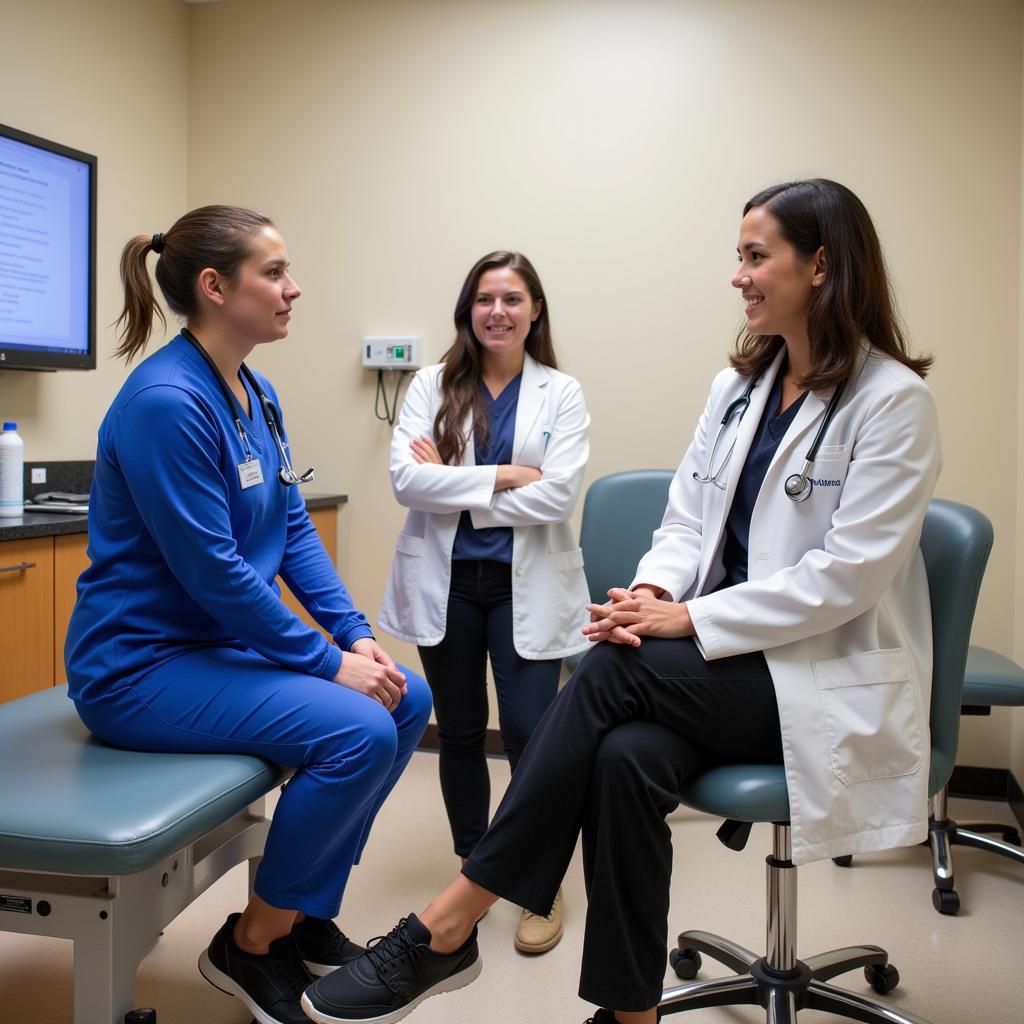Pre-clinical communication skills are pivotal in a doctor’s career. It’s more than just conveying medical information; it’s the art of building trust with patients, laying the groundwork for effective treatment. This article explores the importance of pre-clinical communication skills and offers helpful advice for medical students to cultivate these skills.
The Importance of Pre-Clinical Communication Skills
Effective communication is the cornerstone of a strong doctor-patient relationship. Pre-clinical communication skills help medical students:
- Understand patients: Active listening and asking the right questions help doctors understand the patient’s health status, psychological state, and desires.
- Build trust: Open and sincere communication fosters trust, encouraging patients to cooperate in their treatment process.
- Make accurate decisions: Information gathered through effective communication is the basis for doctors to make appropriate diagnoses and treatment plans.
- Minimize conflicts: Skillful communication helps prevent misunderstandings and resolve conflicts, creating a positive working environment.
How to Enhance Pre-Clinical Communication Skills?
Developing communication skills is an ongoing process that requires effort and persistence. Here are some suggestions:
- Practice active listening: Focus on the speaker’s words, ask questions to clarify information, and show interest.
- Use appropriate body language: Maintain eye contact, smile, and adopt a friendly demeanor.
- Develop medical vocabulary: Master professional terminology to express information accurately and understandably.
- Practice communication in simulated environments: Participate in communication practice sessions with simulated patients to develop practical skills.
Communication Skills in Different Situations
Pre-clinical communication skills are not only applicable in clinics but also in various situations, such as:
- Communicating with colleagues: Exchanging information, collaborating, and solving problems effectively. Learn more about tourism industry skills.
- Communicating with patient families: Informing them about health status, answering questions, and providing psychological support. Find out more about 48 principles of soft skills.
- Communicating in emergencies: Remaining calm, handling situations quickly and effectively. You can refer to Circular 04 regulating life skills education.
Prof. Dr. Nguyen Van A, a leading expert in medical training, shares: “Communication skills are just as important as professional knowledge. A good doctor not only treats diseases but also knows how to listen and share with patients.”
Dr. Le Thi B, Director of Hospital X, also emphasizes: “Good communication skills help build trust and create peace of mind for patients, contributing significantly to the success of the treatment process.”
Conclusion
Pre-clinical communication skills are a crucial factor determining the success of a doctor. By actively practicing and cultivating these skills, medical students can confidently enter the profession and provide the best care for their patients. Survival skill reality TV offers valuable lessons.
FAQ
- Why are communication skills important in pre-clinical settings?
- How to practice effective communication skills?
- How do communication skills affect the doctor-patient relationship?
- What courses are available to improve pre-clinical communication skills?
- How to communicate effectively with difficult patients?
- What is the role of communication skills in teamwork for medical students?
- Where can I find reference materials on pre-clinical communication skills? Teaching communication skills materials is one example.
Description of common question scenarios.
Patients are worried about their health condition, patient families want to know more about treatment plans, colleagues need to exchange information about cases…
Suggestions for other questions, other articles on the web.
You can learn more about other soft skills such as teamwork skills, time management skills…
